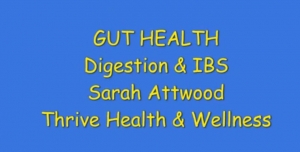 DIGESTION & IBS webinar
DIGESTION & IBS webinar
https://www.youtube.com/watch?v=sV2ErWMuNSY
Here’s a copy of the 45 minute webinar I ran this wee sharing information on digestion, IBS management, FODMAP foods, supplements and health tips.
Sorry I hadn’t realised everyone’s faces would be on the screen and obscuring the presentation so I will amend this setting for next time. You live and learn!
Enjoy x
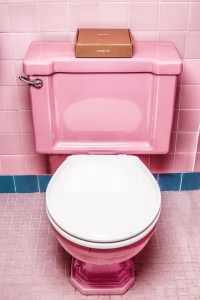 IBS & FODMAP….aka embarrassing toilet and tummy situations!
IBS & FODMAP….aka embarrassing toilet and tummy situations!
IBS digestive symptoms can vary widely, including stomach pain, bloating, reflux, flatulence and bowel urgency. Having suffered with this on and off for decades I can really relate to the pain and embarrassment this causes. I have been working hard to get this under control and wanted to share some of my top insights below.
Annie W asked a question on my Facebook page this week: “I’m conscious that many of the top high fibre foods are not allowed on the fodmap diet. Are you aware of which ones allowed on the low fodmap diet can help with digestion?” I’ll answer this below but first a quick overview…
Why is digestion so important?
Digestion is one of the most important aspect of our bodily functions, without it we do not have the fuel we require to properly function. Absorption is the key and without the correct stomach and small intestine environment the body will struggle to break our foods down adequately enough to absorb the nutrition.
The health of the entire body depends on absorbing vital nutrients, producing digestive enzymes and having the correct balance of beneficial gut bacteria.
Whatever affects the digestive system will also affect the immune system, the nervous system and the hormonal balance throughout the entire body.
What does FODMAP mean?
The FODMAP diet is something people often turn to with IBS to help avoid commonly known trigger foods.
The premise from Australian nutritionists is related to avoiding fermentable foods, essentially those that produce excess gas and wind.
FODMAPs are types of carbohydrates found in certain foods, including wheat and beans. Studies have shown strong links between FODMAPs and digestive symptoms like gas, bloating, stomach pain, diarrhoea and constipation. Low-FODMAP diets can provide remarkable benefits for many people with common digestive disorders
The main dietary sources of the four groups of FODMAPs include:
- Oligosaccharides: Wheat, rye, legumes and various fruits and vegetables, such as garlic and onions.
- Disaccharides: Milk, yogurt and soft cheese. Lactose is the main carb.
- Monosaccharides: Various fruit including figs and mangoes, and sweeteners such as honey and agave nectar. Fructose is the main carb.
- Polyols: Certain fruits and vegetables including blackberries and lychee, as well as some low-calorie sweeteners like those in sugar-free gum.
How can I still eat fibre without getting IBS symptoms?
Fibre can be tricky for IBS as although a healthy digestion aid, for some it can slow the digestive process down and lead to constipation. Check your source of fibre and ensure you are adequately hydrated.
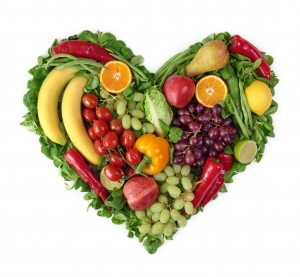 What foods can help or hinder?
What foods can help or hinder?
Increase rotation of menu selection and avoid repetition. Many people eat the same breakfast every day which can create a ‘backed up’ effect in the body and impair digestion and absorption. I like to think I allow any potential inflammatory levels to reduce by giving my body
Not sure how to do this? Pick your favourite 3 breakfasts and rotate these throughout the week. My favourites include overnight chia oats, almond pancakes, home made granola and poached eggs on Biona bread.
ANNIE’S QUESTION: What foods on the FODMAP diet can aid digestion?
Firstly we need to understand the main triggers (NB this is an overview, everyone’s gut is different).
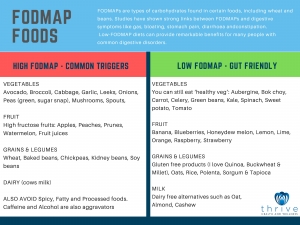
I wish I had know that…:
- Quinoa, buckwheat & millet flakes – either separately or together make the most delicious porridge packed full of antioxidants.
- A sweet potato with skin on is more quickly broken down than a white potato
- Beans and lentils are a tricky category. Chickpeas are hard to digest with IBS but try to find alternatives within the pulses. Puy lentils for example can often be tolerated.
- Chewing gum is a big no no – as it triggers enzyme reactions to raises stomach acid which is then left with nothing to do except produce more gas and acid reflux.
- Keeping hydrated is essential to helping your food move through the bowels and out the other end!
- Eating little and often gives your digestion more chance to work efficiently and absorb your food
- Flaxseed and psyllium husk are often hailed as saviours as they quite rightly bind your food together and help process through the gut, HOWEVER you MUST STAY WELL HYDRATED to enable it to pass smoothly.
BEST SUPPLEMENTS TO HELP?
Key focus: Calming the system, removing trigger foods, soothing and aiding digestion
- ‘DIGESTION PLUS’ from Arbonne is a perfect blend of Digestive Enzymes (to help break down your food and absorb it more easily) and Probiotics (the friendly gut bacteria).
- PEPPERMING TEA & PEPPERMINT CAPSULES can also help calm the digestive system in a gentle manner.
- ESSENTIAL FATTY ACIDS/OMEGA OILS needed to soothe the cells and aid hydration. Cytoplan’s ‘Fish Oil’s offer high potency support. Nutri Advanced ‘Eskimo Brainsharp’
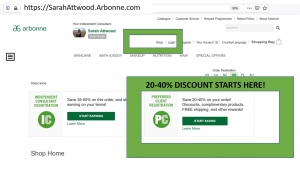 Save Money Bonus: you can also get 20% off all Arbonne products for a whole year just by registering as a ‘Preferred Client’ which is just £10 fee in January so totally worth it even for just 1 purchase. Just go to SarahAttwood.Arbonne.Com
Save Money Bonus: you can also get 20% off all Arbonne products for a whole year just by registering as a ‘Preferred Client’ which is just £10 fee in January so totally worth it even for just 1 purchase. Just go to SarahAttwood.Arbonne.Com
Anything else?
- Please avoid Imodium as ‘bunging yourself up’ chemically is only going to prolong the destabilisation of your gut flora. Hydrate, get your digestion plus going to help ease the situation and increase your fibre.
- Monitor stress Eating in a stressful environment can cause tension and make your digestion slow down so try to take a few deep breaths before eating, take 10 mins away from your desk to eat in a calmer environment and try not to argue over dinner!
Any questions, please just ask.
I offer holistic wellness coaching, food intolerance testing, vitamin & mineral levels testing, food plans and recipe suggestions & emotional barriers support.
I would love to help you, please just get in touch either via messenger or email: [email protected]
